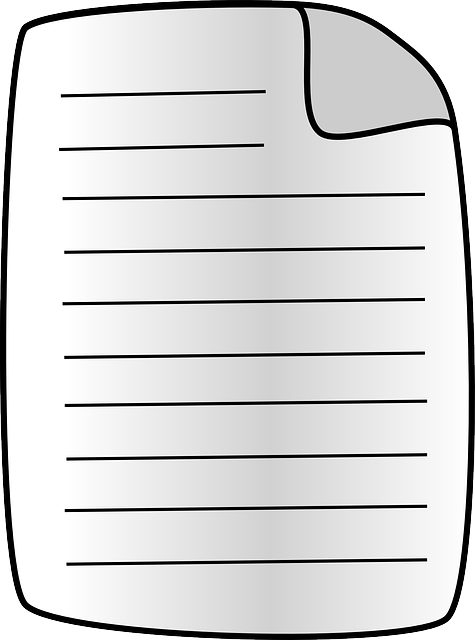In the UK insurance sector, clear communication is vital through accurate translations of insurance policies and claims documents by professional services. These translations navigate legal terminology and cultural nuances, avoiding disputes and ensuring compliance with regulations like GDPR. UK translation services are key for globalized markets, providing technical precision and cultural adaptability while adhering to standards set by the ISTD. Quality assurance checks safeguard consumer rights and foster trust. Leveraging machine translation (MT) and Artificial Intelligence (AI) offers faster, more efficient translations without sacrificing quality, benefiting both insurers and policyholders.
In the intricate world of insurance, clarity is paramount. Ensuring that UK insurance policies and claims documents are accurately translated can prevent miscommunication, errors, and potential legal pitfalls. This article delves into the significance of precise translations within the UK insurance sector, exploring common challenges, the role of professional translation services, accuracy best practices, handling sensitive data, regulatory standards, quality assurance checks, successful case studies, and future trends driven by AI. Discover how these elements intertwine to safeguard consumer rights and streamline processes in the ever-evolving landscape of insurance policies and claims documents UK translation services.
- Understanding the Significance of Clear Translation in UK Insurance
- Common Challenges in Translating Insurance Policies and Claims
- The Role of Professional UK Translation Services
- Ensuring Accuracy: Best Practices for Translators
- Important Considerations When Handling Sensitive Data
- Standards and Regulations for Insurance Documentation Translation
- Quality Assurance Checks: Protecting Consumer Rights
- Case Studies: Successful Translations in the Insurance Sector
- Technological Advancements in Machine Translation for Insurance
- Future Trends: AI and Its Impact on Insurance Policy Translation
Understanding the Significance of Clear Translation in UK Insurance

In the UK, clear communication is paramount in the insurance sector, especially when it comes to insurance policies and claims documents. Accurate and concise translation services play a pivotal role in ensuring that all parties involved – from policyholders to underwriters – understand the terms and conditions. Misunderstandings can lead to costly errors, disputes, and even legal complications.
A professional UK translation service not only translates words but also ensures cultural nuances are respected. This is crucial as insurance practices vary across regions, and what’s clear in one language might not be so in another. By bridging this gap, translation services contribute to a seamless claims process, fostering trust between insurers and policyholders.
Common Challenges in Translating Insurance Policies and Claims

The process of translating insurance policies and claims documents from English to another language presents several unique challenges. Firstly, the intricate legal terminology used in these documents requires a deep understanding of both languages and their nuances. Misinterpretations can lead to ambiguities, which may have significant implications during claim settlements. For instance, different languages may not have direct equivalents for certain insurance concepts, making it crucial for translators to find suitable alternatives that convey the same meaning accurately.
Another common hurdle is cultural variation in legal practices and consumer protection regulations. UK insurance policies often reflect specific local norms and legal frameworks, which might differ drastically from those of other countries. Professional UK translation services must be adept at navigating these cultural differences to ensure that translated documents remain compliant and meaningful in the target market. This involves not just translating words but also understanding the context within which they’re used.
The Role of Professional UK Translation Services

In today’s globalised market, businesses and individuals frequently interact with international entities, making it essential to bridge language gaps. When dealing with insurance in the UK, precise translation of policies and claims documents is critical. Professional UK translation services play a pivotal role here, ensuring that every detail is accurately conveyed from one language to another. These experts are well-versed not just in linguistic nuances but also in the specific terminology used in the insurance sector, thereby guaranteeing clarity and consistency across all communication.
Their work involves more than mere word-for-word translation; they interpret and adapt content to suit the cultural context of the target audience. This is particularly important for UK insurance policies, which may include legal clauses and industry-specific terms that require a deep understanding. Professional translators ensure that these complex ideas are not only translated accurately but also easily comprehensible, preventing any potential misunderstandings or miscommunications that could impact claims processes negatively.
Ensuring Accuracy: Best Practices for Translators

Ensuring accuracy in translating insurance policies and claims documents is paramount to avoid misinterpretations that could lead to disputes or inadequate coverage. Translators play a critical role in this process, following best practices such as adhering strictly to source text nuances, understanding industry-specific terminology, and staying current with regulatory changes relevant to the UK insurance sector. Utilizing specialized UK translation services equipped with subject matter expertise ensures terms are translated correctly, preserving the intent and legal validity of the original document.
Technical precision is essential when handling complex concepts like policy exclusions, coverage limits, and claims procedures. Translators must employ accurate equivalents for industry-specific jargon to maintain clarity and avoid ambiguity in the target language. Moreover, maintaining consistency throughout the translation process across similar documents is vital to establishing a reliable framework for future translations.
Important Considerations When Handling Sensitive Data

When handling sensitive data from insurance policies and claims documents, several crucial considerations come into play, especially when dealing with UK-based materials intended for international audiences. Accurate and culturally appropriate translation services are paramount to ensure that all information is conveyed clearly and effectively. This involves more than just word-for-word interpretation; it requires a deep understanding of legal terminology, cultural nuances, and regulatory requirements specific to the UK insurance sector.
Professional translators with expertise in this domain must be vigilant about preserving the original intent and meaning while adapting content for different languages and cultures. They should also ensure compliance with data protection regulations, such as GDPR, when handling personal and financial information. This includes implementing robust security measures to safeguard sensitive data throughout the translation process, from initial acquisition to final delivery of translated insurance policies and claims documents.
Standards and Regulations for Insurance Documentation Translation

In the UK, insurance policies and claims documents require precise and accurate translations to ensure clarity for all parties involved. Translation services must adhere to strict standards and regulations to maintain integrity and fluency in legal documentation. The Industry Standard for Insurance Documentation Translation (ISTD) provides guidelines that include terminological consistency, cultural adaptability, and a deep understanding of the specific insurance jargon.
These standards are crucial when translating policies and claims as they help avoid potential misunderstandings or misinterpretations. Professional translators, equipped with expertise in both language and insurance sectors, play a vital role in facilitating seamless communication. They ensure that technical terms are accurately conveyed while adhering to regulatory requirements, thereby enhancing the overall efficiency of the claims process for UK-based insurance companies.
Quality Assurance Checks: Protecting Consumer Rights

When it comes to insurance policies and claims documents in the UK, accurate and clear translations are non-negotiable. This is where quality assurance checks come into play. These rigorous processes act as a safeguard for consumers, ensuring that translated texts maintain their original meaning and intent. By implementing these checks, translation services can identify and rectify any potential ambiguities or errors, thereby protecting consumer rights and fostering trust.
Quality assurance involves multiple stages of review and verification. It includes checking for grammatical correctness, semantic fidelity, and cultural appropriateness. This meticulous approach guarantees that insurance policies and claims forms are not only grammatically sound but also easily comprehensible for the target audience. Ultimately, it contributes to a seamless experience for policyholders, ensuring they fully understand their coverage and rights during the claims process.
Case Studies: Successful Translations in the Insurance Sector

In the insurance sector, effective communication is paramount, especially when dealing with complex insurance policies and claims documents. Case studies highlight successful translations that have significantly improved accessibility and understanding for international clients in the UK. For instance, a major global insurer faced the challenge of translating their extensive policy terms into multiple languages to cater to an expanding international customer base. By leveraging professional UK translation services specializing in the insurance domain, they achieved precise and culturally sensitive adaptations, ensuring that customers from diverse linguistic backgrounds could confidently navigate their coverage options.
This success story underscores the importance of specialized translators who grasp the nuances of insurance jargon and legal terminology. They meticulously translated every clause, preserving the intent and ensuring compliance with local regulations. Furthermore, these services often employ advanced technology, including machine translation tools and human reviewers, to guarantee accuracy and consistency across various documents. As a result, clients can easily compare options, file claims, and make informed decisions, fostering trust and satisfaction in their chosen insurance providers.
Technological Advancements in Machine Translation for Insurance

The insurance industry has witnessed a significant evolution in how it manages complex tasks, particularly through the integration of technology. Machine translation (MT) is one such technological advancement that offers immense potential for UK insurance providers and translation services. With MT, insurance policies and claims documents can be efficiently translated, ensuring clarity and precision across different languages. This technology automates the process, allowing for faster turnaround times without compromising on quality.
By leveraging machine learning algorithms, MT systems have become increasingly sophisticated. They can now capture nuanced meanings, handle industry-specific terminology, and even adapt to the context of insurance policies and claims. This level of customization ensures that translated documents remain accurate and relevant, catering to the unique requirements of the UK insurance sector. As a result, policyholders and claimants from diverse linguistic backgrounds can access and understand their rights and benefits with ease, promoting transparency and efficiency in the industry.
Future Trends: AI and Its Impact on Insurance Policy Translation

The future of insurance policy and claims document translation in the UK is set to be transformed by Artificial Intelligence (AI). AI-powered tools are already demonstrating their potential to enhance accuracy, speed, and cost-effectiveness in language services. By leveraging machine learning algorithms, these technologies can analyse vast amounts of data, including industry-specific terminologies and complex regulatory language found in insurance documents. This enables them to provide more precise translations, reducing the risk of ambiguity or misinterpretation that can arise from human error.
Furthermore, AI translation systems can adapt to evolving language trends and industry changes, ensuring that translated insurance policies and claims documents remain up-to-date and relevant. This is particularly important in a rapidly globalising market where UK insurers often operate internationally, necessitating clear and consistent communication across borders. As AI continues to advance, its role in streamlining translation processes will become increasingly vital, fostering efficiency, precision, and customer satisfaction within the insurance sector.
In ensuring clarity in translated UK insurance policies and claims documents, professional translation services play a pivotal role. By addressing common challenges, adhering to standards and regulations, and implementing quality assurance checks, insurers can protect consumer rights and foster trust. Technological advancements in machine translation, coupled with AI integration, promise further enhancements in the future, revolutionizing how we navigate complex insurance documentation. Ultimately, clear communication is key to building a robust and transparent insurance ecosystem.



